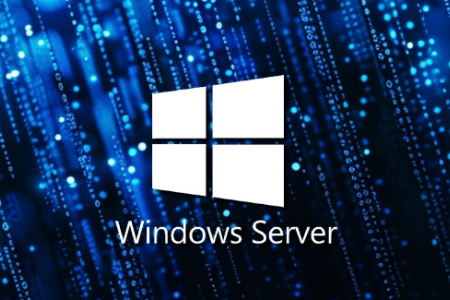Windows Server is a server operating system launched by Microsoft. Compared with other operating systems, Windows Server has many advantages, making it the first choice for enterprise website building, network applications and database management.
Windows Server is easy to use. It uses a friendly user interface and intuitive operation mode, allowing users to learn and use the system faster. Even for people without technical background, they can easily get started and operate.
Windows Server has a wide range of compatibility. It can run a variety of applications and software, especially Microsoft's Office, Exchange, SQL Server and other software. This allows enterprises to easily integrate and upgrade existing software systems and improve work efficiency.
Security is one of the important features of Windows Server. It provides a variety of security measures to protect the security of corporate data. These include user and access control, data encryption, network isolation and other functions. These security mechanisms effectively prevent potential threats and unauthorized access, and ensure the integrity and confidentiality of corporate data.
By ensuring high reliability and stability, Windows Server ensures the business continuity of the enterprise. It can handle a large number of concurrent requests and can withstand high-load working environments. At the same time, Windows Server provides disaster recovery and backup functions to cope with emergencies and ensure the security and availability of data.
Microsoft provides comprehensive technical support and update services to ensure the normal operation and upgrade of enterprise systems. Whether facing operating system problems or other software-related questions, enterprises can get professional technical help in time to solve various technical problems. In addition, Microsoft also regularly releases new updates and patches to fix known vulnerabilities and improve system performance.
Windows Server system has many advantages such as ease of use, compatibility, security, reliability and support. It can not only meet the basic needs of enterprises, but also cope with the ever-changing market needs. Therefore, whether it is a small or medium-sized enterprise or a large enterprise, choosing Windows Server as a server operating system is a wise decision.
What are the main advantages of Windows Server?
Security: Windows Server has multiple layers of security measures such as authentication, access control, encryption and antivirus protection to protect the organization's data and network from external attacks.
Management: Windows Server provides easy-to-use management tools such as Windows Admin Center, PowerShell, etc., which can easily manage and monitor networks and servers.
Reliability: Windows Server has high reliability and fault tolerance, can continue to run in the event of a failure, and automatically restore services.
Virtualization: Windows Server supports virtualization technology, which can run multiple virtual machines on a single physical server to improve hardware utilization and save costs.
Scalability: Windows Server can be expanded and upgraded according to the needs of the organization to meet changing business needs.
Compatibility: Windows Server has wide compatibility and can be integrated with various hardware and software applications to support different business needs.
What are the main disadvantages of Windows Server?
High cost: Windows Server is a commercial operating system that requires the purchase of a license, which may increase the cost of the organization.
Steep learning curve: Windows Server requires professional technicians to install, configure and manage, which may require the organization to spend additional time and resources to train employees.
High server hardware requirements: Windows Server requires powerful hardware support, such as high-speed processors, large-capacity memory, and high-speed hard disks, which may increase the hardware costs of the organization.
Large updates: Windows Server updates are usually large and take a long time to complete, which may affect the business operations of the organization.
Compatibility issues: Some software or applications may not be compatible with Windows Server, which may limit the organization's application choices.
Security issues: Although Windows Server has multiple layers of security measures, there may still be security vulnerabilities, which may put the organization's data and network at risk.
What are the advantages and disadvantages of Windows Server system?
What are the advantages and disadvantages of Windows Server system?
Time : 2025-01-23 14:39:12
Edit : Jtti
Previous one:What is the ping value of the US cn2 server?
Next one:

Relevant contents
Method for generating strong pre-shared keys on Linux
Use ZRAM to prompt Ubuntu performance operations
Analyzing disk space using the top command in Linux system management
Steps and uses for configuring multiple IP addresses on a Singapore server
What are the best distributions of Linux based on Debian
What areas are the hard disks of a server usually divided into
The complete process of installing LXC in RHEL
Pssh implements simultaneous commands on multiple remote linux servers
Latest Posts
Full analysis of the principle of high IP protection: Core technical mechanism and practical application
Analysis of common causes of VPS network speed and latency in Korea
Two-way CN2 cloud server to play the game card or not
Cloud mobile phone definition and main application scenarios sharing
Exclusive IP and dedicated network is the core cornerstone of cross-border e-commerce global competition
The bottom logic analysis of cross-border e-commerce networking
Web server access slow diagnostic flow analysis
IP address and domain name are the dual basis of Internet communication
Overseas multi-C-segment station cluster server Rental Guide Prioritizes stability
Cross-border e-commerce server traffic management precautions and optimization strategy

 EN
EN
 CN
CN








